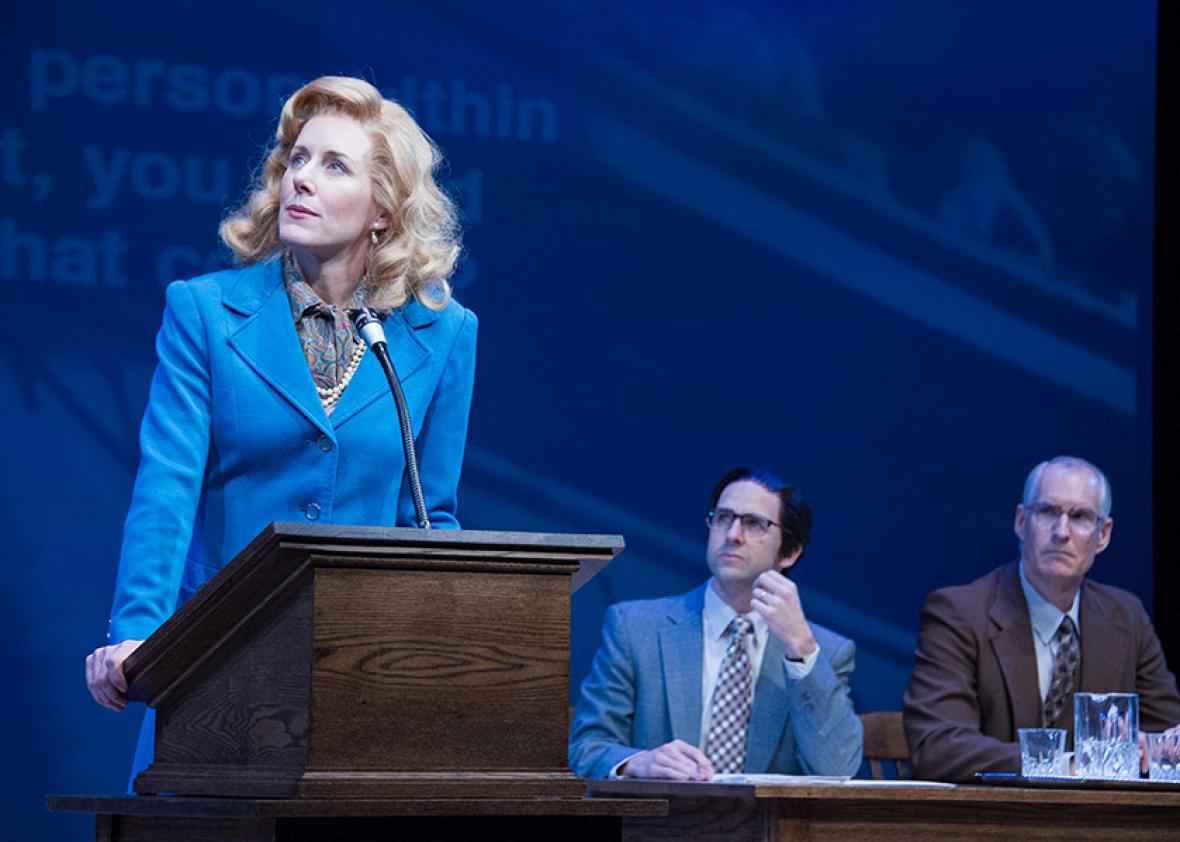Over a year ago, Molly Smith, artistic director of Washington, D.C.’s Arena Stage Theater, scheduled a new play, Roe, to open in the nation’s capital in January 2017. The stars, it seemed, would be perfectly aligned. January would mark both the 44th anniversary of Roe v. Wade, the U.S. Supreme Court’s landmark decision legalizing abortion, and a historic presidential inauguration. “We thought it would be our first woman president,” Smith said, “I expected the play to open in a celebratory feel.”
Then, of course, Donald Trump got elected as the 45th president of the United States. Now, as Washington prepares for the inauguration, a new urgency has set in on both sides of the abortion divide. This weekend, the Women’s March on Washington will protest, among other things, Trump’s promise to appoint conservative justices to overturn Roe. Meanwhile, right to life groups are urging states to declare Jan. 22 as the Day of Tears and lower their flags to half staff to “mourn the innocents who have lost their lives to abortion.” Roe opens this week, just a few miles from the Supreme Court, in a very different atmosphere than its creators anticipated, but perhaps under an even greater spotlight.
Since this production of Roe had its world premiere at the Oregon Shakespeare Festival last year, playwright Lisa Loomer has tinkered slightly with the script. For instance, in the very last line, the character Sarah Weddington—the plaintiff’s attorney who argued the landmark case—now says: “With the Supreme Court behind us … as of this moment, Roe still stands.” The original line said “as of tonight”; Weddington made the subtle change just to “make it even more immediate that Roe is in more jeopardy.” Thanks to Trump, Loomer says, “the play has become more of a cautionary tale, more of an urgent cry to look at what’s at stake. But she’s quick to add: “This is not a pro-choice polemic.” The actual Supreme Court case is only one scene in the play. Instead, it looks at America’s cultural divide over abortion through the eyes of the two women at the heart of the Roe v. Wade case, plaintiff Norma McCorvey (the bartender who was known by the legal pseudonym Jane Roe) and Weddington, her 26-year-old attorney. The women began as allies and later split when McCorvey converted to Christianity and began to speak out against the Roe decision.
In some ways, Loomer says that the play is a Rorschach test. “Given that it’s both comedic and tragic, the comedy will play differently and so will the tragedy now that Trump has ben elected.” Her goal in writing the play was to let people “listen to a point of view that’s not their own.” She recognizes that anyone “who feels that choice is essential will never bear with Roe v. Wade being overturned. And for the people who think this is about murder, they will never be able to bear living with this law. But I do think people come out of the theater with a little more compassion for the other side.”
For Loomer, it’s all a bit daunting to think about the cultural warfare that will be raging in Washington while the play is at the Arena Stage (through Feb. 19). She’s been told that New York producers will be coming down to Washington to size up Roe for the Broadway audience. And she was excited to hear through the grapevine that Ruth Bader Ginsburg, a frequent theatergoer, intends to see Roe. And she’d also love for the incoming president to see it. “I hope Mr. Trump comes with his daughters and they sit on either side of him, because Justice Blackmun, who wrote the majority opinion in Roe v. Wade, said that his wife and daughters were a profound influence on his thinking.”
